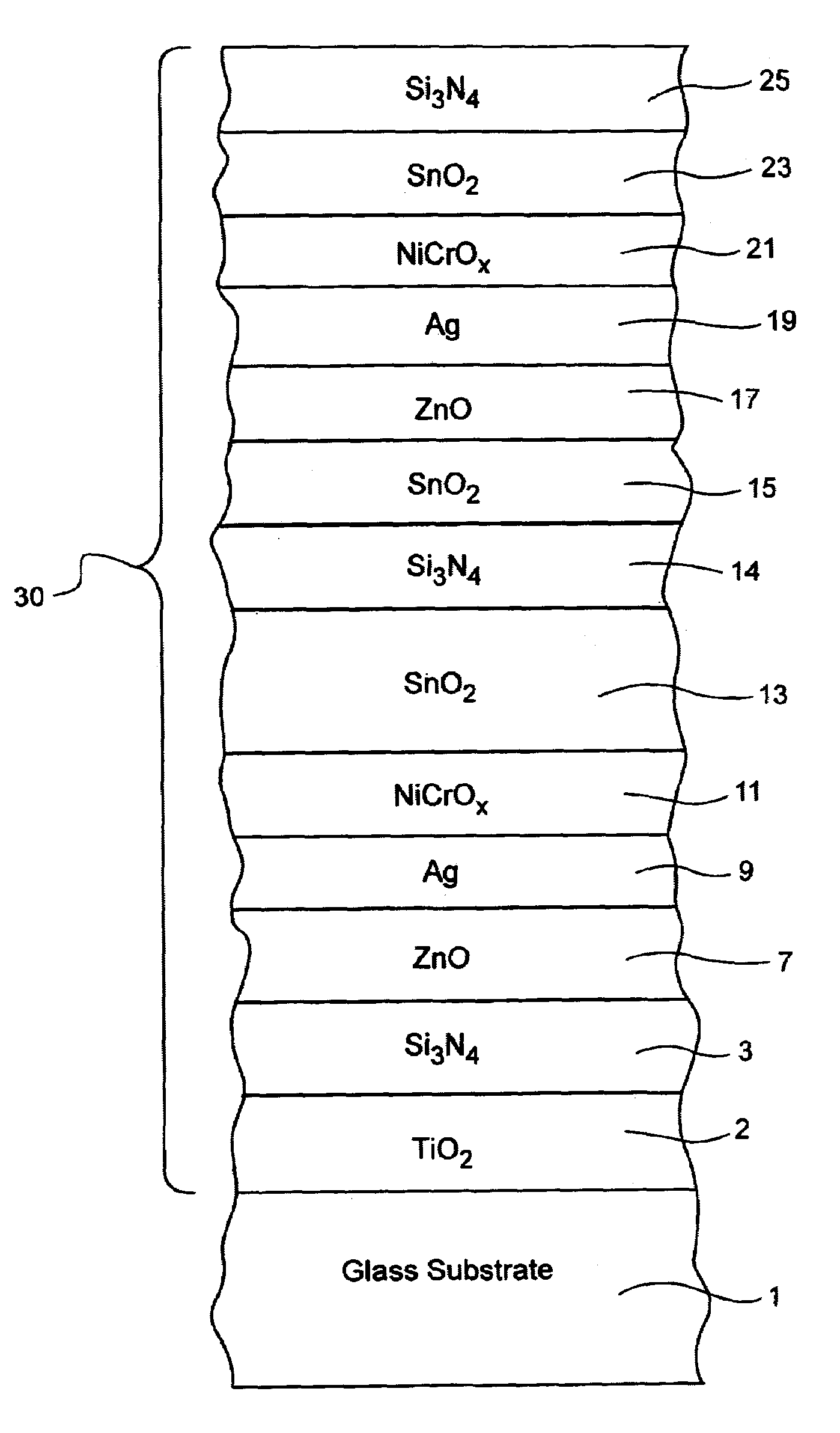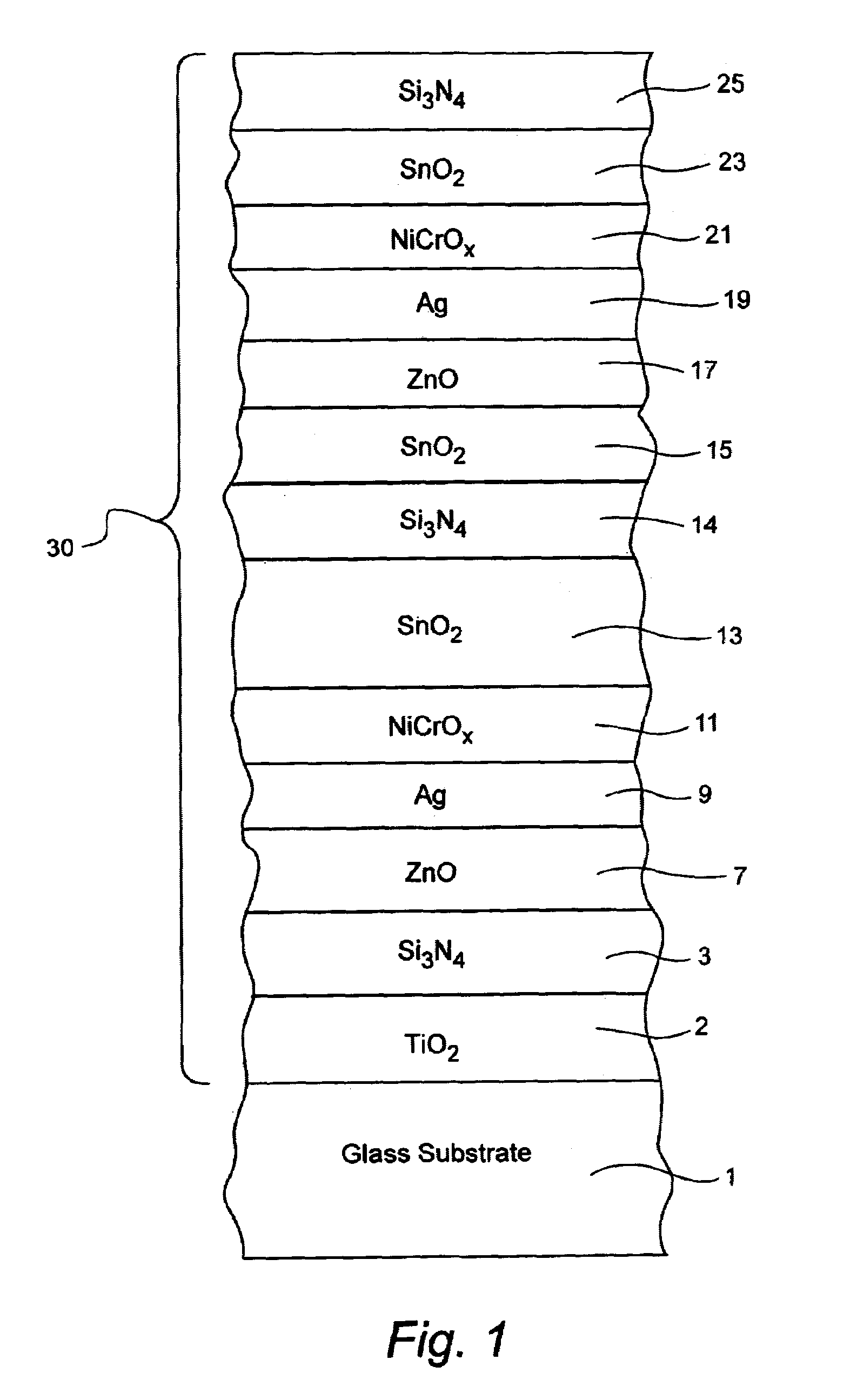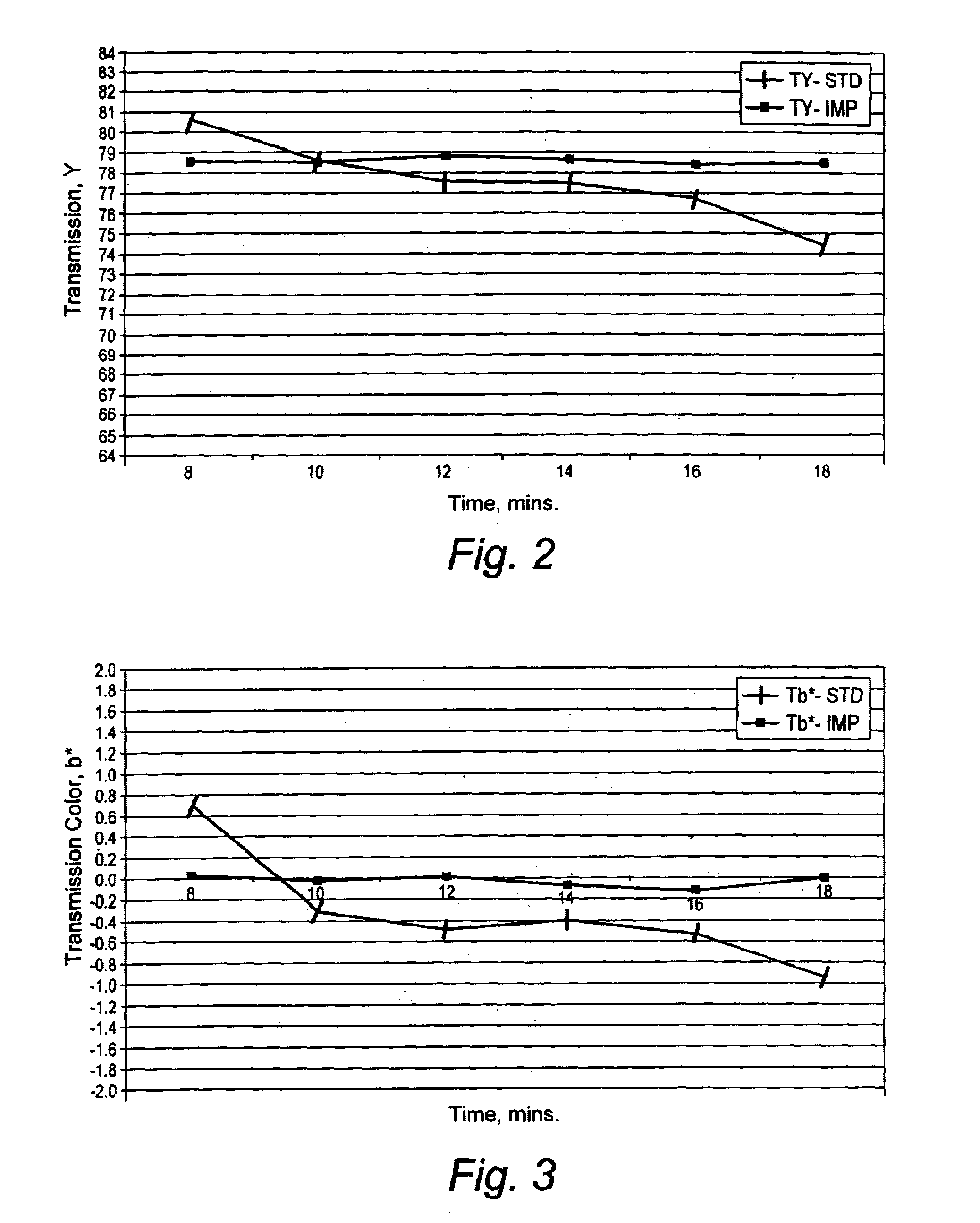Coated article with low-E coating including tin oxide interlayer
a technology of tin oxide and coating article, which is applied in the direction of coating, natural mineral layered products, water-setting substance layered products, etc., can solve the problems of coating breaking down, one or more of the above-mentioned desirable characteristics to significantly deteriorate in an undesirable manner, and the coated article to suffer significant drops in visible transmission. , to achieve the effect of improving thermal stability, mechanical durability, and improving thermal stability
- Summary
- Abstract
- Description
- Claims
- Application Information
AI Technical Summary
Benefits of technology
Problems solved by technology
Method used
Image
Examples
example 1
Monolithic, Before / After HT
[0071]
Characteristicpre-HTPost-HTTvis (or TY)(Ill. C 2°):72.82%78.53%a*t (Ill. C 2°):−2.96−1.79b*t (Ill. C 2°):2.490.02RfY (Ill. C, 2 deg.):6.56%5.97%a*f (Ill. C, 2°):−6.75−7.99b*f (Ill. C, 2°):9.897.20L* (Ill. C 2°):30.7729.35RgY (Ill. C, 2 deg.):7.21%5.94%a*g (Ill. C, 2°):−1.31−1.99b*g (Ill. C, 2°):0.79−1.53L* (Ill. C 2°):32.2929.26Rs (ohms / square):2.682.04Haze:0.150.12
[0072]FIG. 7 illustrates another example embodiment of this invention. Where like reference numerals are used to indicate the same layers in the FIG. 7 and FIG. 1 embodiments, the layers are the same in the FIG. 7 embodiment as in the FIG. 1 embodiment discussed above. The FIG. 7 embodiment is similar to the FIG. 1 embodiment, except that layer 2 has been eliminated, and layers 22 and optionally 50 added.
[0073]With respect to the FIG. 7 embodiment, surprisingly, it has been found that the provision of zinc oxide inclusive layer 22 directly over the nickel chrome oxide contact layer 21 abov...
example 2
Monolithic, Before / After HT
[0081]
CharacteristicEx. 2 (annealed)Ex. 2 (post-HT)Tvis (or TY)(Ill. C 2°):77.69%81.21%a*t (Ill. C 2°):−4.87−2.87b*t (Ill. C 2°):5.420.25RfY (Ill. C, 2 deg.):6.36%7.20%a*f (Ill. C, 2°):8.010.16b*f (Ill. C, 2°):4.2510.70L* (Ill. C 2°):30.3032.26RgY (Ill. C, 2 deg.):7.52%8.04%a*g (Ill. C, 2°):14.056.69b*g (Ill. C, 2°):−5.783.29L* (Ill. C 2°):32.9634.08Rs (ohms / square):2.791.9
example 3
Monolithic, Before / After HT
[0082]
CharacteristicEx. 3 (annealed)Ex. 3 (post-HT)Tvis (or TY)(Ill. C 2°):77.77%81.71%a*t (Ill. C 2°):−5.21−3.60b*t (Ill. C 2°):5.970.88RfY (Ill. C, 2 deg.):6.02%6.82%a*f (Ill. C, 2°):10.513.97b*f (Ill. C, 2°):0.446.60L* (Ill. C 2°):29.4731.39RgY (Ill. C, 2 deg.):7.31%7.77%a*g (Ill. C, 2°):15.7110.24b*g (Ill. C, 2°):−8.40−0.55L* (Ill. C 2°):32.5033.50Rs (ohms / square):2.782.02Haze:n / a0.39
PUM
| Property | Measurement | Unit |
|---|---|---|
| sheet resistance | aaaaa | aaaaa |
| sheet resistance | aaaaa | aaaaa |
| sheet resistance | aaaaa | aaaaa |
Abstract
Description
Claims
Application Information
 Login to View More
Login to View More - R&D
- Intellectual Property
- Life Sciences
- Materials
- Tech Scout
- Unparalleled Data Quality
- Higher Quality Content
- 60% Fewer Hallucinations
Browse by: Latest US Patents, China's latest patents, Technical Efficacy Thesaurus, Application Domain, Technology Topic, Popular Technical Reports.
© 2025 PatSnap. All rights reserved.Legal|Privacy policy|Modern Slavery Act Transparency Statement|Sitemap|About US| Contact US: help@patsnap.com



